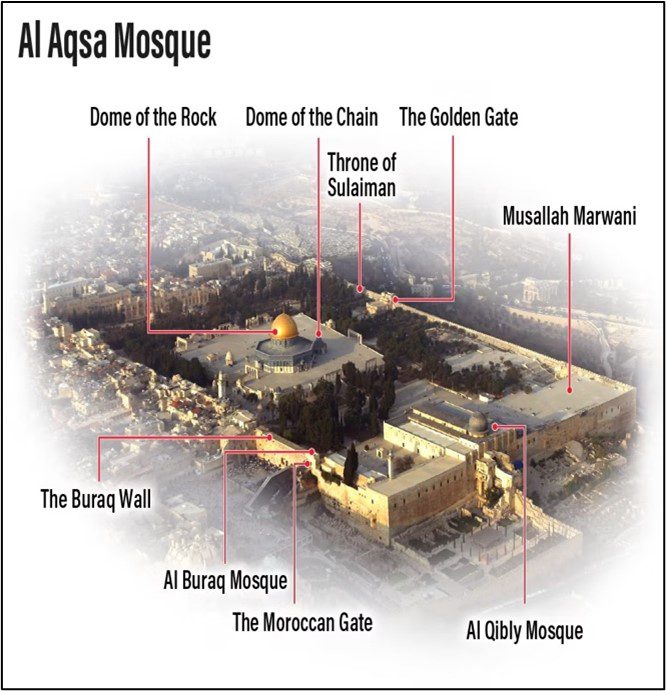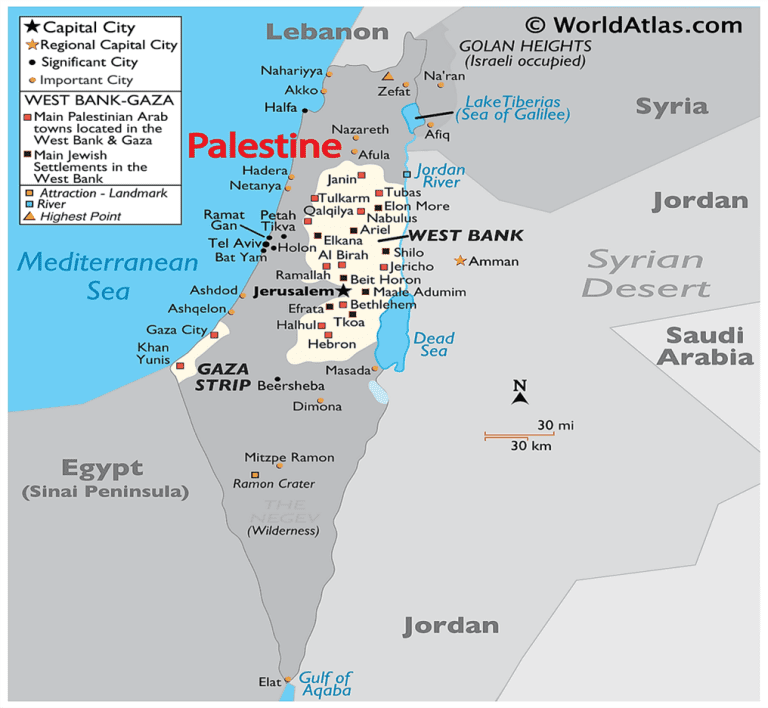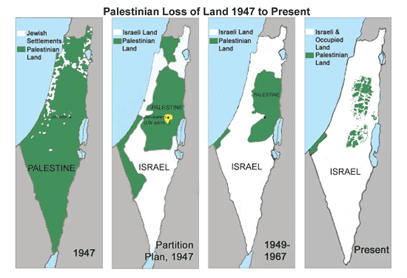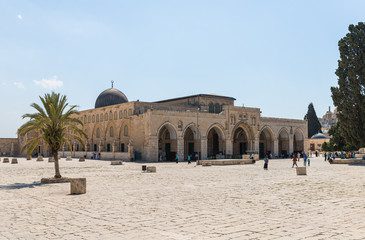Masjid Al-Aqsa: A Symbol Of History and Faith
Masjid al-Aqsa, also known as the Al-Aqsa Mosque, holds a unique place in the hearts and minds of Muslims worldwide. It is not only one of the holiest sites in Islam, but it also carries a rich historical and cultural significance. However, its history is marred by controversies that continue to fuel tensions in the Middle East. In this article, we will explore the history and importance of Masjid al-Aqsa while shedding light on the major controversies attached to it.

Historical Significance of Al Aqsa Mosque
Masjid al-Aqsa, situated in the heart of the Old City of Jerusalem, is the third holiest site in Islam, following the Kaaba in Mecca and the Prophet’s Mosque in Medina. The mosque’s historical significance is deeply rooted in Islamic tradition and the Quran. It is believed to be the location from which the Prophet Muhammad ascended to the heavens during the Night Journey and Ascension, an event known as the Isra and Mi’raj.
Why Masjid Al Aqsa is Important for Jews and Muslims
For Muslims
- Islamic Tradition: Masjid Al-Aqsa is mentioned in the Quran as the “farthest mosque” (Al-Masjid al-Aqsa) to which the Prophet Muhammad have been miraculously transported during the Night Journey (Isra and Mi’raj). This event is considered one of the greatest miracles in Islamic tradition and underscores the sanctity of Masjid Al-Aqsa.
- Third Holiest Site: After the Kaaba in Mecca and the Prophet’s Mosque in Medina, Masjid Al-Aqsa is recognized as the third holiest site in Islam. It holds a special place in the hearts of Muslims as a place of worship and spiritual significance.
- Historical and Religious Significance: Masjid Al-Aqsa is believed to be the site of the second qibla (the direction faced during prayer) for Muslims. Before the Kaaba in Mecca became the qibla, early Muslims prayed in the direction of Masjid Al-Aqsa. This historical connection underscores its importance to Islamic tradition.
- Connection to Prophets: Muslims believe that numerous prophets, including Ibrahim (Abraham), Musa (Moses), and Isa (Jesus), played pivotal roles in the history of Masjid Al-Aqsa. The site is associated with their teachings and religious experiences.
- Cultural and Historical Heritage: Masjid Al-Aqsa is a symbol of the rich cultural and historical heritage of the Islamic world. It has been a center of scholarship, learning, and worship for centuries, making it an integral part of the Islamic civilization.
For Jews
- Historical and Religious Significance: Masjid Al-Aqsa is believed by Jews to be the site of two significant Jewish temples. The First Temple, known as Solomon’s Temple, and the Second Temple were constructed on the Temple Mount in ancient Jerusalem. The First Temple was destroyed by the Babylonians in 586 BCE, and the Second Temple was destroyed by the Romans in 70 CE. Jews mourn the loss of these temples and pray for the rebuilding of the Third Temple in the same location.
- Connection to Biblical History: The area where Masjid Al-Aqsa stands is associated with important events in Jewish biblical history, including the binding of Isaac (the Akedah) and the location of the Holy of Holies in the First and Second Temples.
- Symbol of Jewish Identity: The Western Wall (also known as the Wailing Wall) is a retaining wall of the Second Temple and is one of the most sacred sites in Judaism. It is a place of prayer and pilgrimage for Jews from around the world. The proximity of the Western Wall to the Temple Mount, where Masjid Al-Aqsa is located, further emphasizes its significance.
- Hopes for Rebuilding: Many religious Jews believe in the prophesied rebuilding of the Third Temple on the Temple Mount, which is currently home to Masjid Al-Aqsa. This belief is rooted in eschatological and messianic expectations within Jewish tradition.
- Connection to the Land of Israel: For Jews, the Temple Mount and Masjid Al-Aqsa are inextricably linked to the land of Israel, and they view the site as a central part of their historical and religious heritage.

Importance in Contemporary Times
Importance in Contemporary Times: Masjid al-Aqsa remains a center of worship, scholarship, and cultural significance for Muslims. The mosque and its surrounding area serve as a focal point for gatherings, prayers, and religious activities. It is a place of spiritual connection for Muslims around the world and a symbol of their historical and religious heritage.
Controversies Surrounding Masjid al-Aqsa: Despite its historical and religious importance, Masjid al-Aqsa has been a focal point of controversy for many years. Several key issues and disputes surround this holy site:
- Israeli-Palestinian Conflict: The most significant controversy regarding Masjid al-Aqsa is its role in the ongoing Israeli-Palestinian conflict. Jerusalem, including the Old City and its holy sites, has been a contested area for decades. The dispute centers around Israel’s control of the city and its implications for the status and administration of Masjid al-Aqsa.
- Religious and Cultural Tensions: The Old City of Jerusalem is home to multiple religious sites sacred to Judaism, Christianity, and Islam. The proximity of these religious landmarks often leads to tensions and conflicts over access and control, particularly during religious holidays and festivals.
- Security Measures and Clashes: Frequent security measures, such as Israeli police presence and access restrictions, have resulted in clashes between Palestinian worshippers and Israeli authorities at Masjid al-Aqsa. These incidents have escalated into violence and have captured international attention.
- Political Implications: The status of Masjid al-Aqsa has political repercussions both within Israel and in the broader Middle East. The issue has played a role in shaping regional geopolitics and influencing the stance of various nations, adding to the complexity of the conflict.
- One key point of contention is the area surrounding Masjid al-Aqsa known as the Temple Mount to Jews. The Temple Mount is believed to be the site of the ancient Jewish temples, making it a sacred place for Jewish worship. However, due to the sensitive nature of the site, Jewish prayer is currently limited, and non-Muslims are only allowed to visit during specific hours.

2023 Israel-Palestine Issue
An ongoing armed conflict betweenPalestinian freedom fighters groups led by Hamas and Israel began on 7 October 2023, with a coordinated surprise offensive on Israel. The attack began in the morning with a barrage of at least 3,000 rockets launched from the Hamas-controlled Gaza Strip against Israel. In parallel, some 2,500 Palestinian fighters breached the Gaza–Israel barrier and captured many civilians and killed many armed forces personnel in neighboring Israeli communities. At least 1,400 Israelis were killed, including 260 people at a music festival in Re’im. Unarmed civilian hostages and captured Israeli soldiers were taken to the Gaza Strip, including women and children. Israel began conducting retaliatory strikes before formally declaring war on Hamas a day later.






